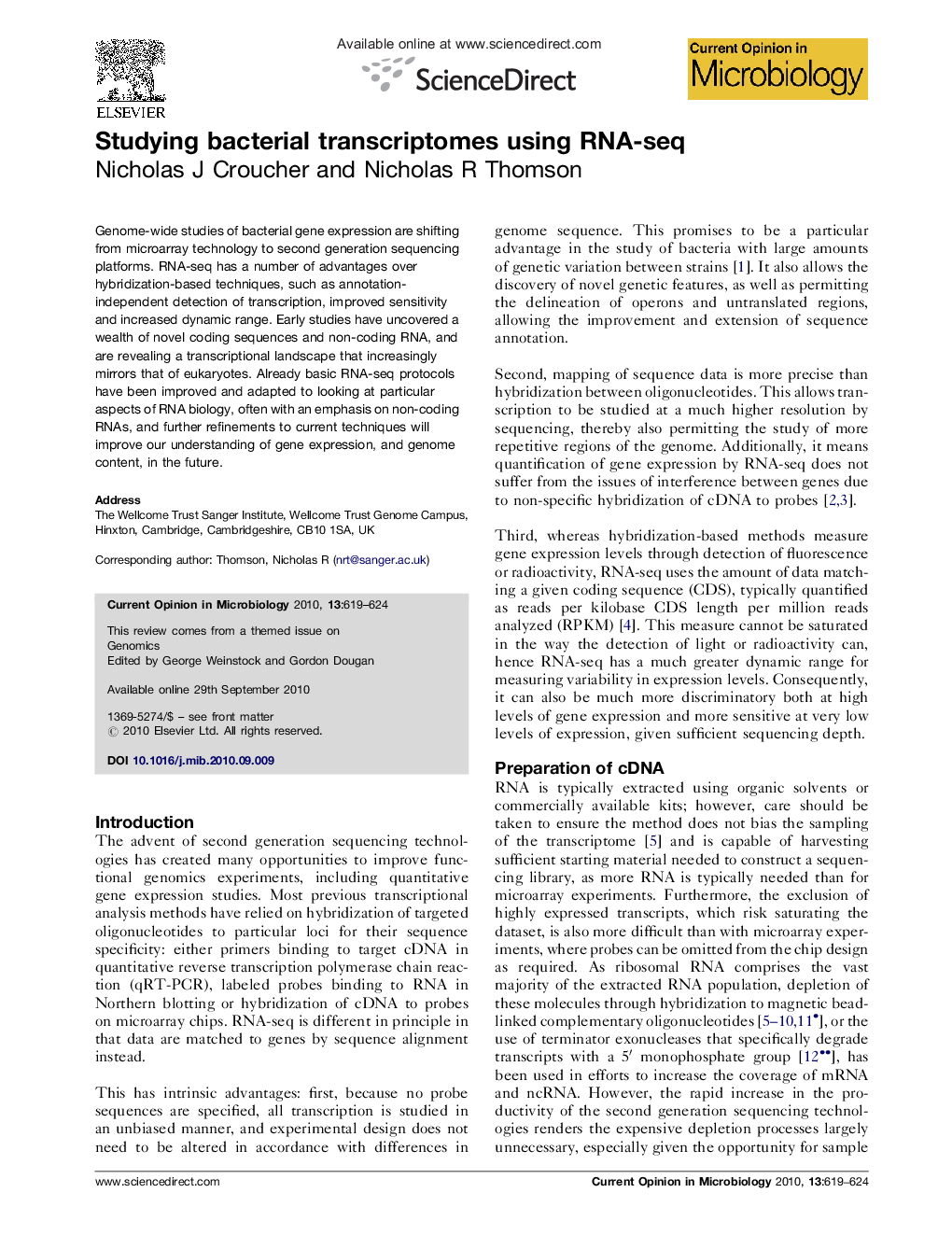| Article ID | Journal | Published Year | Pages | File Type |
|---|---|---|---|---|
| 6132360 | Current Opinion in Microbiology | 2010 | 6 Pages |
Abstract
Genome-wide studies of bacterial gene expression are shifting from microarray technology to second generation sequencing platforms. RNA-seq has a number of advantages over hybridization-based techniques, such as annotation-independent detection of transcription, improved sensitivity and increased dynamic range. Early studies have uncovered a wealth of novel coding sequences and non-coding RNA, and are revealing a transcriptional landscape that increasingly mirrors that of eukaryotes. Already basic RNA-seq protocols have been improved and adapted to looking at particular aspects of RNA biology, often with an emphasis on non-coding RNAs, and further refinements to current techniques will improve our understanding of gene expression, and genome content, in the future.
Related Topics
Life Sciences
Immunology and Microbiology
Microbiology
Authors
Nicholas J Croucher, Nicholas R Thomson,
